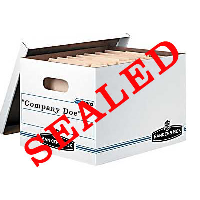Mysterious Product Safety Case Allows Company and Product to Remain Secret

A large coalition of media and consumer organizations have asked a federal appeals court to unseal a mysterious lawsuit involving an unidentified company accused of product safety violations.
The legal case began after a complaint was filed with the Consumer Product Safety Commission (CPSC) through its website, SaferProducts.gov. The target of that complaint went to a federal judge and asked for its name and its product to be kept secret, claiming it had done nothing unlawful and that disclosure would harm its reputation.
The judge agreed to the company’s request, which prompted numerous news outlets and consumer advocates to file a brief (pdf) asking the Fourth Circuit Court of Appeals to overrule the judge’s decision and lift the cloak of secrecy.
The groups took action because the CPSC decided not to appeal the ruling (pdf) itself, Fair Warning reported.
Those objecting to the ruling include Consumers Union, Public Citizen and the Consumer Federation of America, along with the American Civil Liberties Union, the AARP and media organizations including The New York Times, The Washington Post and National Public Radio.
They argue that the secrecy “gravely undermines public confidence in the judicial system.”
The unidentified business, known only as Company Doe in court records, is supported by business groups, such as the National Association of Manufacturers, the American Coatings Association and the Association of Home Appliance Manufacturers.
They claim companies accused of product safety violations have a right to confidentiality if the alleged safety defects are unverified.
“There’s a significant chance of errors or incorrect information being posted to this database,” Cary Silverman, a lawyer representing the business groups, told Fair Warning. “Anyone can submit these reports. It can be plaintiffs’ lawyers who want to drive public opinion against a company because they have litigation against them. It can be an advocacy group that has their own agenda to try to get some sort of regulation. So there’s also potential for misuse.”
Legal experts have noted that the degree of confidentiality afforded to the company in this kind of a case is outside the norm. Usually records are sealed only in very special circumstances, such as when national security is involved.
To date, all that has come to light about the unnamed company is that it was accused of manufacturing a product that harmed a child. The firm submitted medical evidence to counter the charge, which it later claimed convinced a CPSC expert that an “injury mechanism” other than its own product had inflicted the child’s injury.
-Noel Brinkerhoff
To Learn More:
Court Asked to Decide if Transparency Trumps Corporate Reputation in ‘Company Doe’ Case (by Lilly Fowler, Fair Warning)
Company Doe v. Public Citizen (Fourth Circuit Court of Appeals) (pdf)
- Top Stories
- Unusual News
- Where is the Money Going?
- Controversies
- U.S. and the World
- Appointments and Resignations
- Latest News
- Trump Renames National Football League National Trump League
- Trump to Stop Deportations If…
- Trump Denounces World Series
- What If China Invaded the United States?
- Donald Trump Has a Mental Health Problem and It Has a Name






Comments